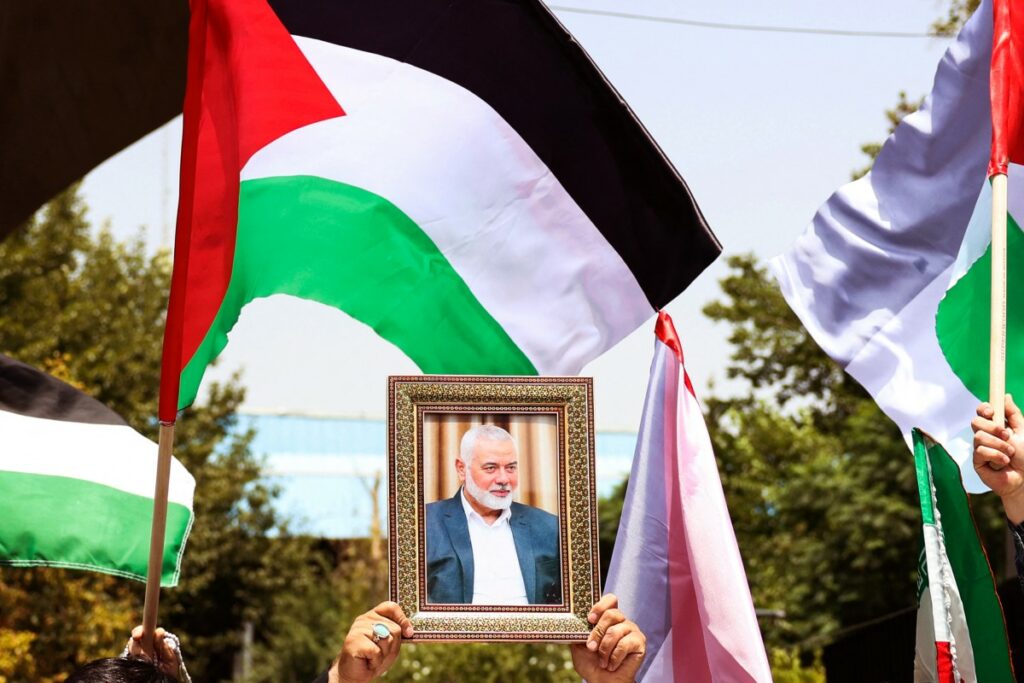Turkish political leaders have condemned the assassination of Hamas political bureau chief Ismail Haniyeh, who was killed in an airstrike in Tehran early on Wednesday, calling the event a significant escalation in the Middle East.
Turkey condemned the assassination, with President Recep Tayyip Erdoğan denouncing it as a “shameful act” undermining the Palestinian cause, and the Ministry of Foreign Affairs warning that it aims to spread the Gaza conflict to the region.
Far-right Nationalist Movement Party (MHP) leader Devlet Bahçeli, an ally of Erdoğan, later pointed to the assassination’s potential to further destabilize the region in a statement on X.
“The martyrdom of Haniyeh as a result of the brutal assassination in his residence in Tehran will further deepen the chaos engulfing the Middle East,” Bahçeli said. He emphasized the seriousness of the threat, saying, “The gradual expansion of conflict zones in the Middle East is almost a signal flare for a widespread war. The danger is serious. The threat is large.”
“The cards are played openly. An undeclared state of war is in force,” Bahçeli said.
Ruling Justice and Development Party (AKP) spokesperson Ömer Çelik condemned the killing and said it was part of a “Zionist plot.”
“We condemn the assassination of Hamas political bureau chief Ismail Haniyeh, one of the leading figures in the Palestinian cause, as a result of a Zionist plot carried out in Tehran. This assassination once again demonstrated that [Prime Minister Benjamin] Netanyahu’s government is a network of genocide and massacre,” Çelik stated.
Cemil Ertem, one of President Erdoğan’s advisers, said Haniyeh’s death would contribute to the “destruction of murderous Israel.” He described Haniyeh as a symbol of resistance whose martyrdom would bolster the Palestinian struggle.
Parliament Speaker Numan Kurtulmuş referred to Haniyeh as a “great mujahid” and slammed the Israeli government as an “enemy of humanity.”
Opposition leaders joined in the condemnation, with main opposition Republican People’s Party (CHP) leader Özgür Özel calling the assassination a “murder” and lamenting the ongoing violence. Islamist opposition Felicity Party (SP) leader Temel Karamollaoğlu urged supporters to join rallies in support of Gaza and Palestinian prisoners.
Jailed Kurdish leader Selahattin Demirtaş also condemned Haniyeh’s assassination as a cowardly act and denounced Netanyahu’s government for its “extreme immorality and lawlessness.”
Haniyeh, 62, was a key figure in Hamas and a symbol of Palestinian resistance. The residence in Tehran where he was staying was targeted in the early morning hours, resulting in his death and that of his bodyguard.
Haniyeh’s death marks a significant blow to Hamas, both strategically and symbolically, complicating ongoing ceasefire negotiations between Israel and Hamas.
Israel’s military campaign in Gaza, which began on October 7 following an unprecedented attack by the Palestinian militant group Hamas, has led to more than 39,000 casualties and massive devastation, according to the health ministry in Gaza.
Haniyeh was in Iran to attend the inauguration of new Iranian President Masoud Pezeshkian. His assassination follows a period of heightened tensions between Iran and Israel. Iran has consistently supported anti-Israel groups, including Lebanese-based Hezbollah and Hamas, supplying them with funding, weapons and training. Israel, in turn, has conducted numerous airstrikes against Iranian targets in Syria and Lebanon to counteract Iranian influence and military buildup in the region.

